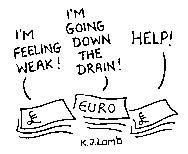I met a Distinguished Old Rock Critic at a party recently, and was delighted to find that the obvious acronym didn’t apply.
I met a Distinguished Old Rock Critic at a party recently, and was delighted to find that the obvious acronym didn’t apply. We chewed on this and that: CDs vs downloads, the blackboard-scraping quality of Chris Martin’s voice, and the unending need to hear the wonderful new music we know is out there somewhere but can’t seem to find. He is my senior by some years but the bug is still in his system, which I found encouraging. I met a Distinguished Old Rock Star recently, too, and he admitted he couldn’t give a monkey’s about any of it, and listened to as little as he could get away with.
Where the Rock Critic and I really saw eye to eye, though, was on the question of live music. We had both witnessed a fair amount, as you might expect, and neither of us saw much now. I told him of my tinnitus problem, and he told me of his can’t-be-bothered problem, both of which come to the same thing: precious time spent at home listening to records, which we might otherwise waste queuing for a glass of horrible wine in the O2 surrounded by people telling each other how wonderful live music is and that it’s the real deal.
This is the consensus that has gradually built up over the years, that recorded music, though often produced with extraordinary care and imagination, is somehow less ‘authentic’ than the live experience, where you actually see the musicians in the flesh, there up on the stage, playing instruments! Unless you’re at the O2, that is, where the musicians are so far away that you spend most of the evening watching the giant video screens to see what’s going on. It’s as intimate and authentic as a Nuremburg rally. At least Hitler didn’t charge you £75 just to take your seat.
The music business, of course, worked this out years ago. As the revenue stream from CDs dried up, musicians realised that the credulity and passivity of the live audience represented an exciting new way to make piles of cash. Ticket prices soared far above the realms of value for money, high into the ionosphere of blatant opportunism. The purchaser collaborated in the deception, maybe gaining a small masochistic ripple of pleasure from being so comprehensively ripped off. The same principle underlies the pricing policies of Premier League football, most high fashion and next year’s Olympics. You pay the price of your devotion, which gives it value it doesn’t intrinsically possess. And some people grow fantastically rich on the proceeds.
This April, for instance, U2 broke the record for the highest grossing tour of all time, when they passed $558 million. You can buy quite a few baldy headscarves with that. Leonard Cohen, whom I saw in November 2008, is still out there somewhere, apparently making the same jokes we heard on the live album. A second live album has since been released: that’s what ‘heritage’ acts do now, just release live album after live album, and live DVD after live DVD, which their fans loyally buy and never play. While unflagging in my admiration for Sir Paul McCartney, I note with disappointment that he has released somewhere in the region of 4,263 live albums over the past 20 years, when he could have made himself more useful writing songs.
Recession has no effect on the Premier League or designer fashion, and I bet we were all surprised by how many people signed up for Olympics tickets, brutally overpriced though they were. But live music is suddenly in decline. The bonanza years appear to be over. Maybe there has just been too much of it, and the special has become commonplace. Or maybe the people who went to see most live music are the people who don’t have as much money as they did three or four years ago.
But the Distinguished Old Rock Critic and I wondered whether the emperor’s new clothes might not be involved as well. Listen to Jo Whiley’s In Concert show on Radio 2 on Thursdays and you will hear an awful lot of indifferent live music. The ‘authenticity’ is an illusion, a piece of spin, put about by a business that trades on authenticity but doesn’t actually have (or want) any. CDs and downloads, by contrast, have never been cheaper in real terms, and offer amazing value for money. If the world undervalues recorded music, I suppose I am trying to say, it may be the world’s fault, rather than the music’s.





Comments